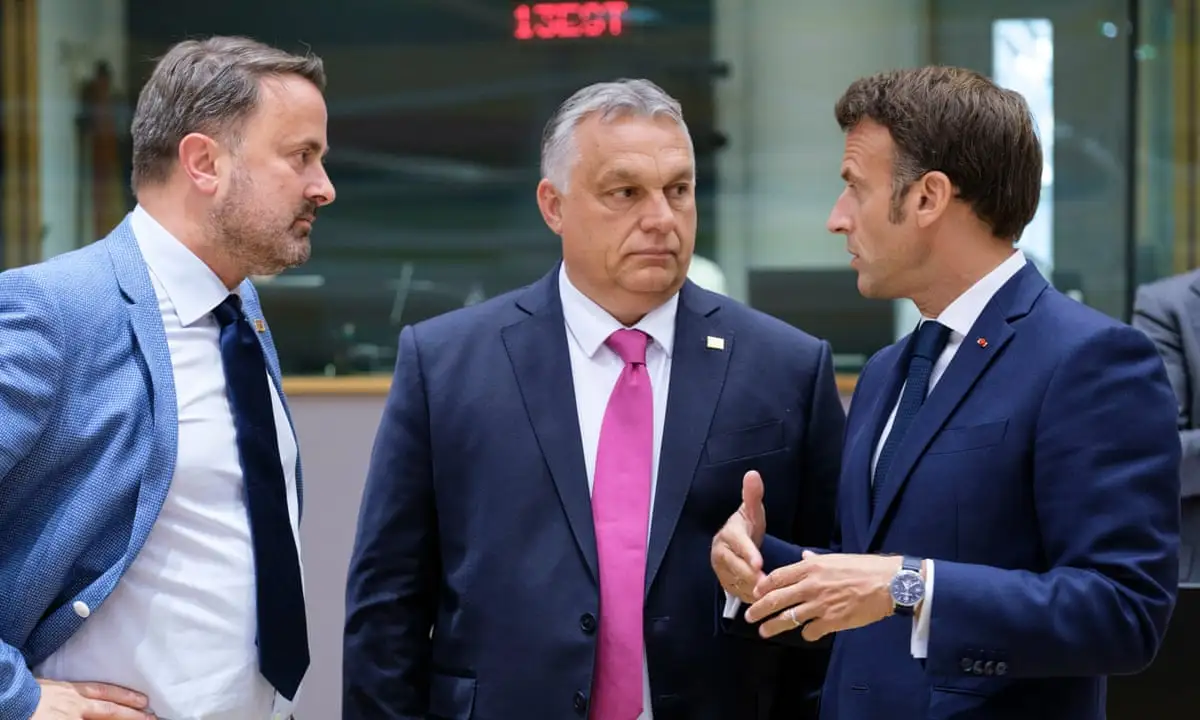Accountability
EU leaders agree on partial embargo of Russian oil imports

European Union leaders are set to agree on Thursday to cut their reliance on Russian fossil fuels, although are divided over whether to cap gas prices and to sanction oil imports as Russia continues their war with Ukraine.
The deal will still allow for the imports by pipeline but bans all Russian oil brought in by sea, which will cut “a huge source of financing for its war machine,” EU Council President Charles Michel wrote on Twitter.
EU Council President Charles Michel said on Twitter the agreement covers more than two-thirds of oil imports from Russia, “cutting a huge source of financing for its war machine. Maximum pressure on Russia to end the war.”
The EU had already imposed five previous rounds of sanctions on Russia over its war. It has targeted more than 1,000 people, including Russian President Vladimir Putin and top government officials, as well as pro-Kremlin oligarchs, banks, the coal sector and more.
The sanctions package covers about two-thirds of all oil imported from Russia. French President Emmanuel Macron said 90% of Russian oil imports will be banned by the end of this year.
Europe currently gets about 40% of its natural gas and 25% of its oil from Russia, though some countries rely more heavily on Russia for their energy.
This sixth round of sanctions was originally announced in early May but has been held up for weeks over concerns from Hungary, Slovakia, the Czech Republic, and other nations about where they would turn for oil.
Hungarian Prime Minister Viktor Orban welcomed the EU’s deal on Monday but said “in the case of an accident with the pipeline” that Hungary would need “the right to get Russian oil from other sources.”
Ukrainian President Volodymyr Zelenskyy addressed European leaders in a video message, saying that “Russia must feel a much higher price for its aggression.”
Terry A. Hurlbut has been a student of politics, philosophy, and science for more than 35 years. He is a graduate of Yale College and has served as a physician-level laboratory administrator in a 250-bed community hospital. He also is a serious student of the Bible, is conversant in its two primary original languages, and has followed the creation-science movement closely since 1993.
-

 Civilization2 days ago
Civilization2 days agoWhy Europe Shouldn’t Be Upset at Trump’s Venezuelan Actions
-

 Accountability4 days ago
Accountability4 days agoWaste of the Day: Principal Bought Lobster with School Funds
-

 Executive3 days ago
Executive3 days agoHow Relaxed COVID-Era Rules Fueled Minnesota’s Biggest Scam
-

 Constitution4 days ago
Constitution4 days agoTrump, Canada, and the Constitutional Problem Beneath the Bridge
-

 Christianity Today2 days ago
Christianity Today2 days agoSurprising Revival: Gen Z Men & Highly Educated Lead Return to Religion
-

 Civilization3 days ago
Civilization3 days agoThe End of Purple States and Competitive Districts
-

 Executive2 days ago
Executive2 days agoWaste of the Day: Can You Hear Me Now?
-

 Executive3 days ago
Executive3 days agoWaste of the Day: States Spent Welfare in “Crazy Ways”


